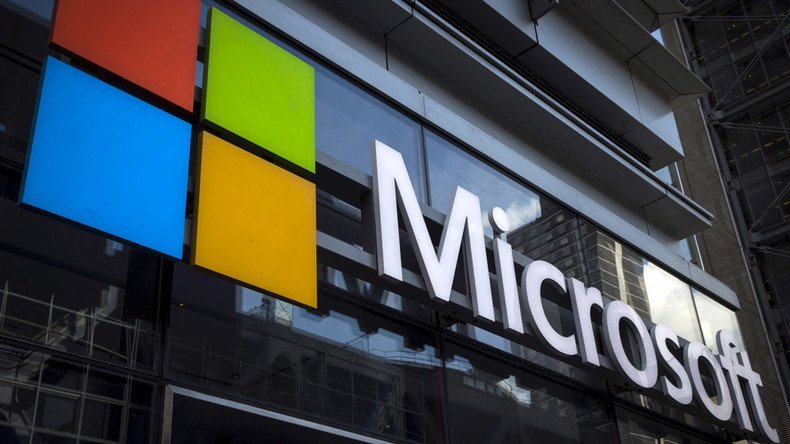Microsoft sues DoJ over gag laws blocking customers from knowing govt got their data

Microsoft has filed a lawsuit against the US Justice Department claiming the government’s authority to block technology companies from notifying customers when their personal data has been accessed is unconstitutional.
Filed in federal court on Thursday, the lawsuit alleged that the federal government is increasingly using search warrants to comb through customer information that is held by Microsoft, and that it is essentially banning the company from ever letting people know about the government’s behavior.
We've filed suit this morning to protect our customers’ rights to privacy & free expression. Here's why. https://t.co/sZBFjtBmbM
— Brad Smith (@BradSmi) April 14, 2016
Microsoft said that over the last year and a half, US courts have ordered it to not notify customers that their data was obtained by the government a total of 2,576 times. About 68 percent of these gag orders, or 1,752 of them, did not feature any sort of fixed end date.
“This means that we are forever barred from speaking, and our customers are forever barred from hearing that the government has accessed their email or other content,” said Brad Smith, Microsoft’s president and chief legal officer, to the Washington Post. “So this matters to people and the rights that all of us are entitled to enjoy under the Constitution.”
Overall, the last 18 months have seen the government demand customer information from Microsoft more than 5,600 times.
EU watchdogs demand changes in US data transfer deal for lack of protection https://t.co/07E10cBVgOpic.twitter.com/CyNouqPzZX
— RT (@RT_com) April 14, 2016
According to the Microsoft, these never-ending gag orders violate both the First and Fourth Amendments. The company also claims that these secretive gag orders are “becoming routine.”
“We believe these actions violate two of the fundamental rights that have been part of this country since its founding,” wrote Smith on the Microsoft blog. “These lengthy and even permanent secrecy orders violate the Fourth Amendment, which gives people and businesses the right to know if the government searches or seizes their property. They also violate the First Amendment, which guarantees our right to talk to customers about how government action is affecting their data.”
Under the Electronic Communications Privacy Act, US courts can order companies to remain silent about government investigations if they think notifying customers could result in destroyed data or otherwise harm an investigation, the Wall Street Journal reported. Microsoft said it understands there are times when secrecy is needed, but that the rising number of orders has caused it to question whether the government’s policy is too lax.
With communications largely moving into the digital space, however, Microsoft argued that the government is demanding data and silence far more often than it did in the pre-internet days.
“[The] government seeks and executes warrants for electronic communications far more frequently than it sought and executed warrants for physical documents and communications – apparently because it believes it can search and seize those documents and communications under a veil of secrecy,” the suit claims.
One law professor, Jamil Jaffer of George Mason University, told the Washington Post that Microsoft may have trouble winning on Fourth Amendment grounds in court, since individuals are generally required to allege violations of personal rights
Meanwhile, law professor Jennifer Daskal of American University said gag orders that have time limits are likely to be declared legal.
“So long as there is a valid basis for delay, and the customer ultimately gets notice, there does not seem to be a constitutional problem,” she told the newspaper.
Apple-FBI encryption tensions spiked upon iOS 8 reveal in 2014 - report https://t.co/5jlhNiqgJzpic.twitter.com/qx4vuZtIJp
— RT America (@RT_America) March 21, 2016
Others have suggested that companies like Microsoft have become less willing to cooperate with the government even when search warrants have been approved. In other battles, too, such as the one between the FBI and Apple over encrypted iPhones, companies are leaning towards privacy in order to protect their customer base.
“Prior to 2014, a lot of the companies weren’t adversaries. Then it became a business decision to be less friendly to law enforcement,’’ said Terry Cunningham, president of the International Association of Chiefs of Police, to WSJ.
For its part, Microsoft says it wants the Justice Department to set “reasonable limitations” for secretive gag orders, and that it wants Congress to amend the Electronic Communications Privacy Act if the Justice Department doesn’t do so.













